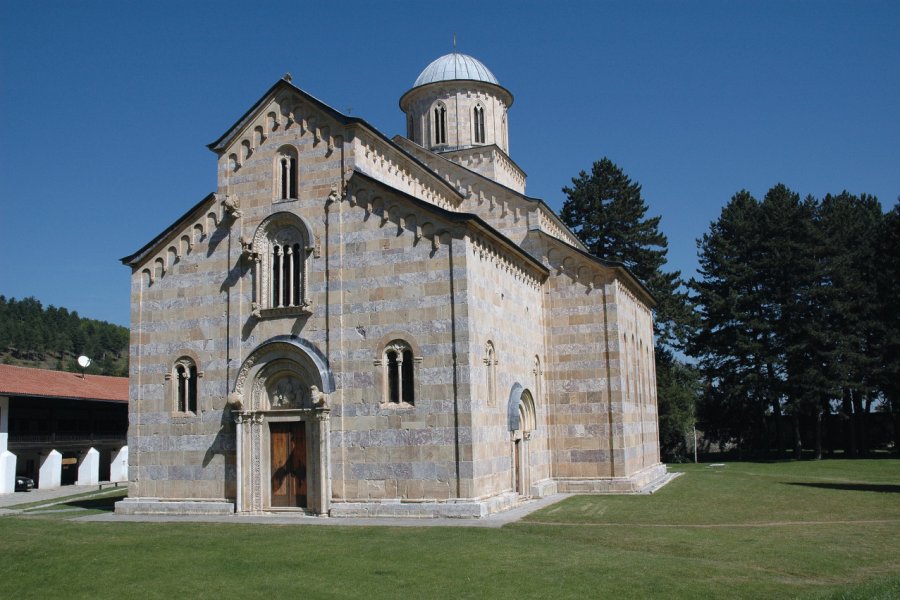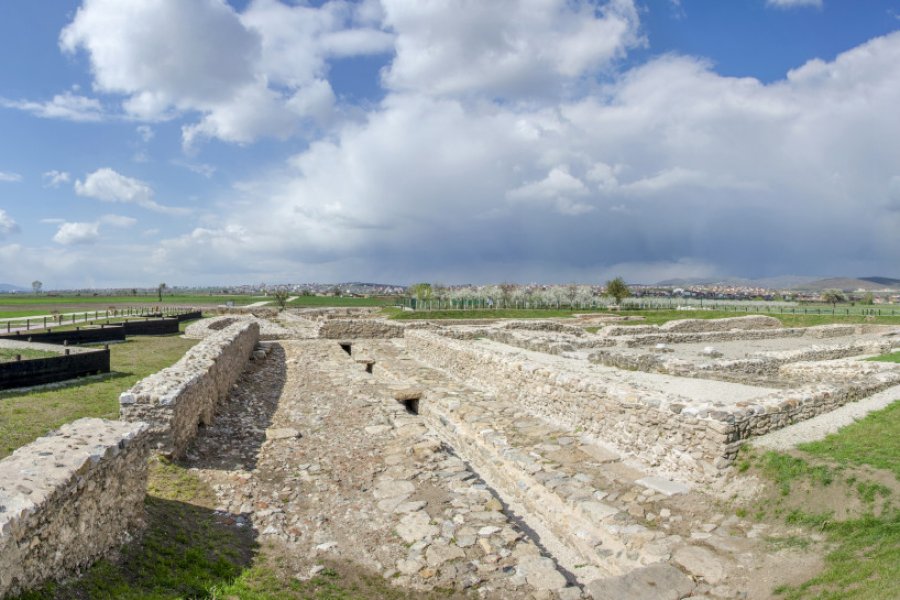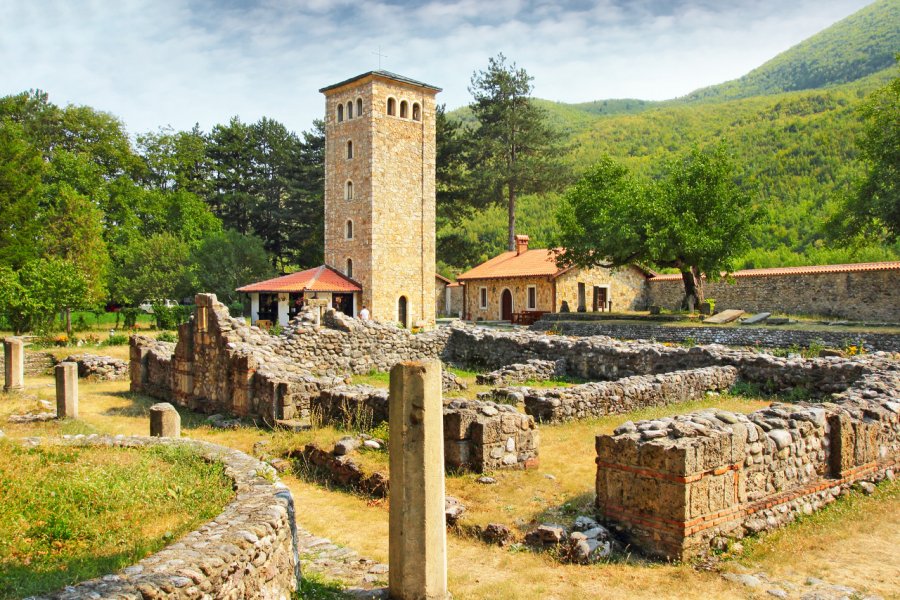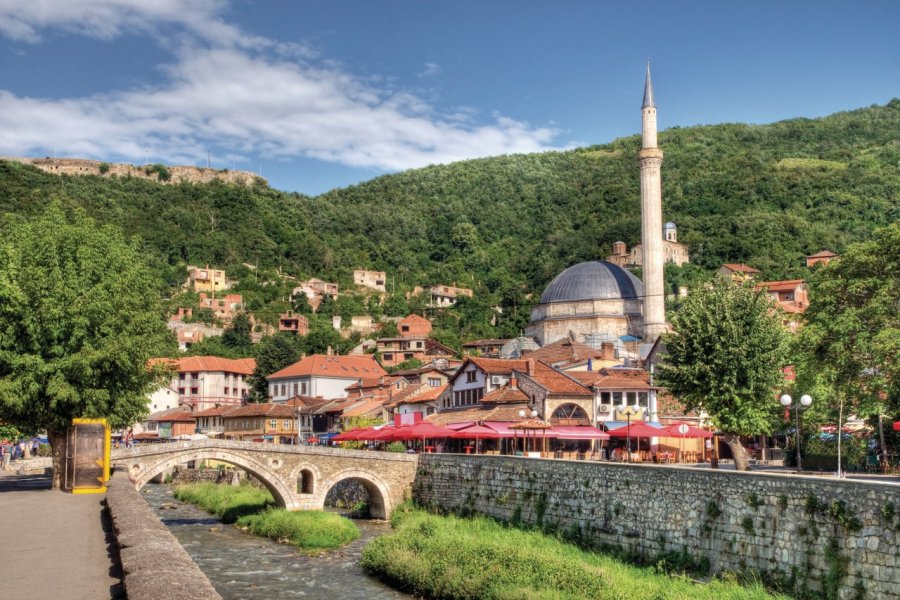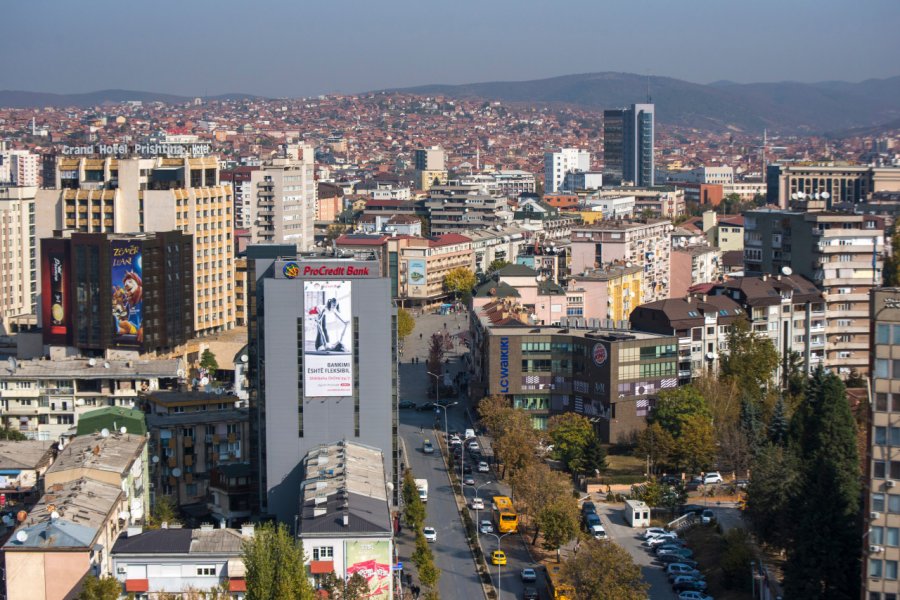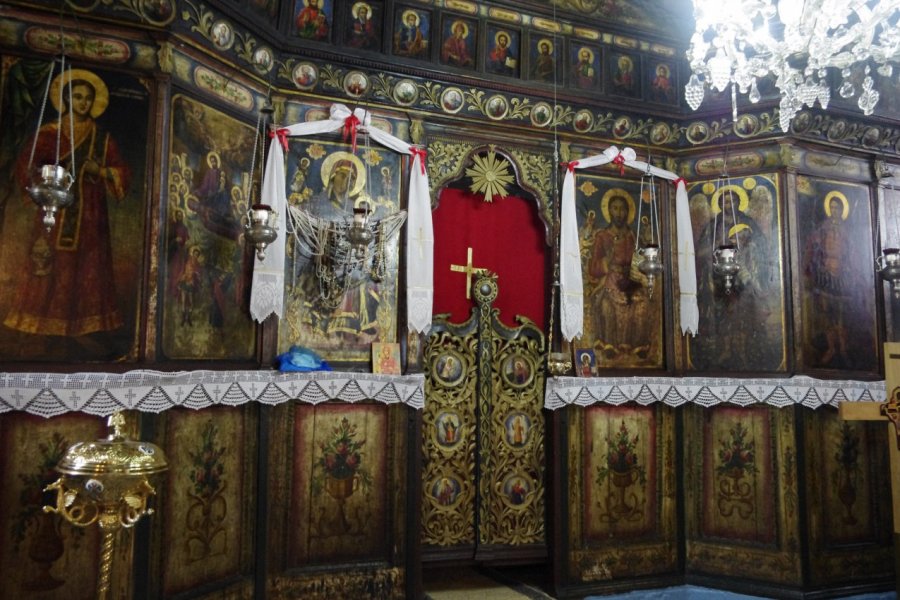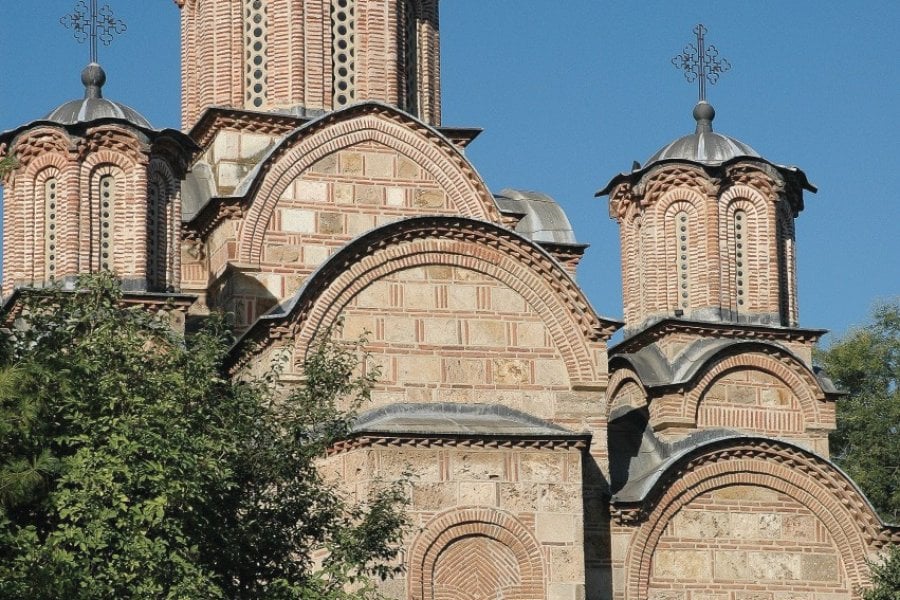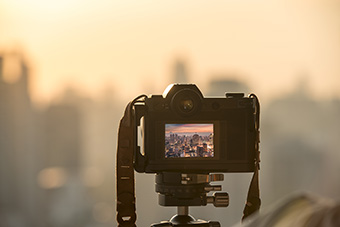What to see, what to do Kosovo?
The 10 good reasons to go Kosovo

The mountains
The country is composed of 80% of mountains that offer beautiful landscapes.
The cheese
In the south of Kosovo, the Goran minority prepares one of the best cheeses in the Balkans.

The story
Ancient sites, Serbian Orthodox monasteries, Ottoman mosques, modernist buildings..

Hospitality
Like its Balkan neighbours, Kosovo retains a real sense of welcome

The monasteries
The Dečani Monastery (a Unesco World Heritage Site) alone is worth the trip.

National parks
The Albanian Alps National Park (to the west) and the Šar Mountains National Park (to the southeast).
The proximity
Less than two hours flight from Lyon, Brussels, Geneva or Basel-Mulhouse.

A low cost destination
In Kosovo, prices are attractive for western travelers.

A young nation
Witness the construction of the youngest European nation, born in 2008
The minerals
In Mitrovica, the Museum of Mines and Minerals houses a unique collection in Europe
What to visit Kosovo?
Good to know to visit Kosovo
 Timetable
Timetable
National museums are open from Monday to Saturday. Municipal museums and government offices are closed on weekends. All are closed on public holidays: New Year's Day (January1 and 2), Orthodox Christmas (January 7), Independence Day (February 17), Constitution Day (April 9), Catholic Easter Monday (date varies: April 18, 2022, April 10, 2023, April1, 2024), Orthodox Easter Monday (date varies: april 25, 2022, April 17, 2023, May 6, 2024), Labor Day (May1 ), Europe Day (May 9), Eid al-Fitr (variable date: May 2, 2022, April 21, 2023, April 10, 2024), Eid al-Adha (variable date: July 10, 2022, June 29, 2023, June 17, 2024), and Catholic Christmas (December 25). When a holiday falls on a Sunday, the following Monday is a holiday.
 To be booked
To be booked
Nothing special is required in terms of reservations. The principle is perhaps subject to an exception if you choose to visit the wine cellars, in the Rahovec/Orahovac region for example. These visits including a tasting, expensive for the country (from 5 to 10 € per person depending on the cellar), require a reservation.
 Budget & Tips
Budget & Tips
Entrance to museums is inexpensive and often free. Visits to monasteries, churches, mosques and tekkés are also free, as is access to national parks
 Main events
Main events
Officially, Kosovo has the following eleven public holidays:
New Year's Day (Viti i Ri):1 January
Eid el-Kebir (Bajrami i Madh): feast of sacrifice for Muslims, date varies according to the Muslim lunar calendar
Aid el-Fitr (Bajrami i Vogël): sugar festival, celebrates the end of Ramadan, date varies according to the Muslim lunar calendar
Kosovo Independence Day (Dita e Pavarësisë): february 17
Kosovo Constitution Day (Dita e Kushtetutës RK): April 9
Easter (Festa e Pashkeve): date varies according to the Gregorian calendar
Labor Day (një Maj): May1
Europe Day (DitaeEuvropës): May 9
Liberation Day (Dita e Clirimit): June 12
Flag Day (Dita e Flamurit): November 28
Christmas Day (Krishlindjet): December 25 in the Gregorian calendar
 What's very local
What's very local
Visits to places of worship should be made in accordance with local customs and religious rules. For all, it is advisable to be correctly dressed. That is to say, as many parts of the body as possible should be covered, avoiding in particular bare arms and legs. It is also a question of attitude: do not make noise, do not speak loudly, do not touch. For mosques, you must take off your shoes before entering the prayer hall and women must cover their heads. Unless otherwise indicated, you can visit them, but outside of prayer hours. These vary from day to day. However, mid-day is the time when the congregation is most numerous: prefer the other times of the day. You should also avoid entering a mosque on Friday, the day of the main prayer, unless you want to pray too. The same applies to tekkés: Sufi dervishes have rules that vary according to the brotherhood, but you must take off your shoes, sometimes cover your head for women and avoid visiting on Fridays, the day reserved for private collective ceremonies. In Serbian Orthodox places of worship, it is also imperative to show respect and to be properly dressed. Photographs are generally not permitted. In some monasteries, women are required to cover their heads and legs (veils and long skirts are provided in this case). Catholic churches are more flexible on the dress code. Like the Orthodox churches, they welcome the largest number of worshippers on Sunday mornings (visit before or after the ceremony).
